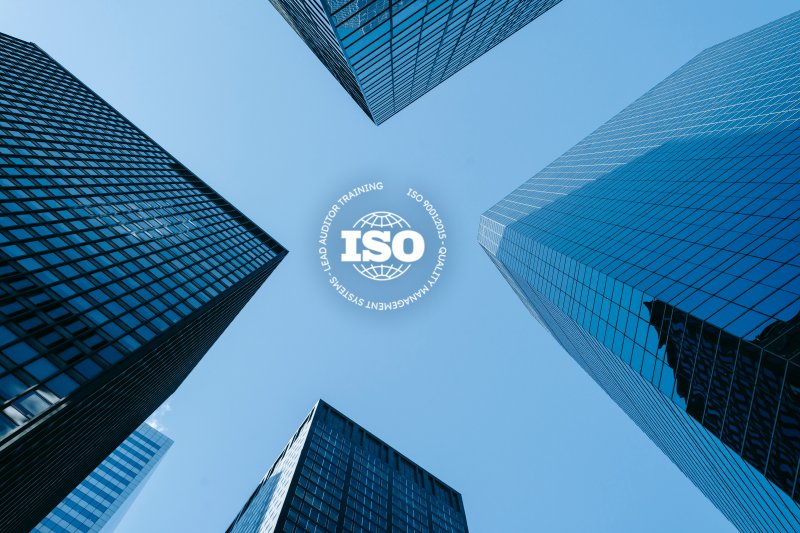The Importance of ISO 9001 Lead Auditor Certification for Organizations

Top 5 Reasons You Need a Digital Marketing Strategy in 2023
May 30, 2023
Accounting and Finance: Why is it Important for Your Business?
June 12, 2023ISO 9001 is an international standard that specifies requirements for a quality management system (QMS). A QMS is an organization’s processes and procedures to ensure that its products and services meet customer requirements. ISO 9001 certification is a third-party audit confirming that an organization’s QMS meets the standard’s requirements.
An ISO 9001 lead auditor is a trained expert who can lead audits of organizations that are seeking ISO 9001 training course. Lead auditors must have extensive knowledge of the ISO 9001 standard and the skills to conduct effective audits.
Why do Organizations Need ISO 9001 Lead Auditor?
Improved Customer Satisfaction
ISO 9001 provides all-size organizations with a systematic approach to meeting customer requirements. Organizations can enhance their processes and guarantee the consistent delivery of products and services that exceed customer expectations by implementing quality management systems that align with ISO 9001 standards. It leads to increased customer satisfaction, loyalty, and positive recommendations.
Increased Efficiency
ISO 9001 promotes process efficiency and effectiveness. Organizations can improve their efficiency by adopting standardized procedures. This approach eliminates unnecessary steps and reduces redundancies, resulting in streamlined operations. Optimizing processes saves time and resources and improves productivity and output quality.
Reduced Costs
ISO 9001 training course emphasizes the concept of waste reduction and process improvement. Organizations can achieve cost savings, improved profitability, and a more competitive market position by identifying inefficiencies, eliminating non-value-added activities, and implementing continuous improvement practices. It involves reducing waste, minimizing rework, and optimizing resource allocation.
Improved Risk Management
ISO 9001 encourages organizations to identify and address risks to their business processes. Organizations can conduct comprehensive risk assessments and implement risk mitigation strategies to prevent potential threats and minimize their impact. This proactive approach improves operational resilience, ensures business continuity, and protects against quality-related issues that can harm customer satisfaction and organizational performance.
Enhanced Reputation
ISO 9001 is internationally recognized and respected as a symbol of quality and reliability. Organizations show their dedication to meet demanding quality standards and improving their processes by obtaining this training course. It enhances their reputation in the marketplace, instills confidence in customers, and sets them apart from competitors.
If you are interested in becoming an ISO 9001 lead auditor, there are several steps you need to follow.
Steps to Follow for ISO 9001 Lead Auditor
If you’re interested in becoming an ISO 9001 lead auditor, here are some additional details about the steps involved:
Get Trained
Start by enrolling in a recognized ISO 9001 lead auditor training course. These courses provide in-depth knowledge of the ISO 9001 standard, auditing principles, techniques, and practices. Depending on your schedule and preferences, you can choose from various training options, such as in-person classes or online programs.
Gain Experience
Practical experience is essential for becoming a professional lead auditor. Once you’ve completed your training, seek opportunities to gain experience by participating in auditing activities. You can start by volunteering to conduct audits for organizations not seeking ISO 9001 certification. It helps you to practice your auditing skills, familiarize yourself with audit processes, and gain confidence in conducting assessments.
Take the Exam
Once you have obtained training and experience, you can participate in ISO 9001 lead auditor exam. Organizations like the International Register of Certified Auditors (IRCA) usually conduct the exam. The assessment measures your comprehension of the ISO 9001 standard and auditing principles and practices.
Get Certified
After successfully passing the ISO 9001 lead auditor exam, you will receive certification as an ISO 9001 lead auditor. This training course serves as a recognition of your qualification and enhances your professional credibility in the field of auditing.
Benefits of ISO 9001 Lead Auditor Training Course
Increased Career Opportunities
This training course enhances your professional profile and opens various career opportunities in quality management, compliance, and auditing roles.
Higher Salary Potential
The ISO 9001 can increase salary prospects as organizations value certified professionals’ expertise and specialized skills.
Professional Recognition
The ISO 9001 provides recognition within the industry, showcasing your commitment to excellence in auditing and quality management.
Expanded Knowledge and Skills
The process involves in-depth training and practical experience, expanding your knowledge and skills in quality management systems, auditing techniques, risk management, and continuous improvement.
Conclusion
Obtaining the ISO 9001 lead auditor certification for organizations is crucial. It ensures that skilled professionals with the required knowledge carry out audits. It enhances customer satisfaction, manages risks, and improves the organization’s reputation. It is a valuable asset that can open doors to new opportunities and demonstrates a dedication to excellence in auditing. If you aspire to become a certified ISO 9001 lead auditor, contact us for expert guidance and support. Take the next step towards your professional growth and success.




